- Home
- Patrick Robinson
The Delta Solution Page 8
The Delta Solution Read online
Page 8
Mack Bedford frowned but switched off the radio because he had more pressing business, like three more men quitting and informing his junior instructors they were DOR—dropping out on request.
Mack faced the leading group and thanked them for their efforts, giving them immediate permission to rest. The following bunch of fifteen, the hard-driving runners-up, arrived next. Mack said nothing. But he stood glowering at the third group, half-dead with exhaustion, fighting their way across the sand fifty yards back.
There were four young men among the twenty who Mack suspected were not “putting out,” men who were quite good runners and could, perhaps, have gone faster but lacked resolution. Worse yet, one of the four was a very tough young officer and an extremely popular guy.
Mack Bedford bellowed at them, watching their eyes, watching the way some heads went down. “You see that group up the beach resting?” he yelled. “Those guys are winners. And they’re being rewarded for trying their guts out! You guys are LOSERS! Hear me? GODDAMNED LOSERS!”
No one spoke. “GET WET AND SANDY!” bawled Mack. “AND DO IT FAST—FOR A CHANGE!”
The shattered group of twenty BUDs hopefuls responded, “HOO-YAH! Instructor Mack.”
They headed for the breakers, buffeting their way into the freezing Pacific, out through the first crash of the waves and into the second. At least, nineteen of them did. The young officer quit unconditionally, requesting permission to drop out and leave.
Mack Bedford nodded curtly. Unsmiling. The kid would never be back for another try. Surface fleet officers are only allowed one shot at becoming a SEAL and are formally regarded as guys who should have known better than to apply.
Mack watched the other nineteen. Two other instructors were already down at the edge of the water also watching carefully, both with stopwatches, ensuring the men were out of the water before hyperthermia set in.
On the signal, the nineteen men came running out of the water, reached the dry sand and rolled in it, standing to attention as the chafing and itching kicked in. Each man was barely recognizable. Mack Bedford stood before them and yelled. “FLUTTER KICKS!” he ordered. “GET IN THAT WATER AND SHOW SOME EFFORT!”
The men rushed down to the shallows and hit the water, glad to wash away some of the sand. They then turned over and dropped onto their backs at the very extreme of the tide’s reach, with only their heads and shoulders in the ocean.
They began their kicks, lifting both outstretched legs and pushing them up and down. It was, without doubt, the most brutal of all the disciplines and very nearly impossible for men who have run four miles and then treaded water, in the surf, for six minutes.
The pain was almost unbearable, burning thighs and lower backs. And every time a wave rolled in, the water washed over their faces, suddenly and unexpectedly. Men were coughing and spluttering, trying to breathe, trying to kick, trying to spit out saltwater, choking, struggling for air, some of them giving up.
After the rest of the class had straggled across the finish line, four of the instructors walked among the men doing the flutter kicks. Everyone except the first group of winners was in the Pacific Ocean in a kind of surreal disgrace.
The instructors knew precisely how impossible the kicks were, but they laid into the men verbally. “GODDAMNIT! YOU’RE LIKE A BUNCH OF GODDAMNED FAGGOTS! ARE YOU SURE YOU WANT TO BE HERE? WHY DON’T YOU QUIT RIGHT NOW. GO AND RING THE GODDAMNED BELL!”
By now, no one was capable of correctly performing the flutter kicks. The instructors, of course, did not care one way or another. They cared who was trying; they watched for the men who would not give in, whose faces were set, whose jaws were jutting, whose fists were clenched, whose legs were still pumping, who spat out the seawater. They were looking for the ones who swore and roared with the pain. But who would not give in.
Almost every single one of the 162-odd guys who had set off along the beach an hour previously would be on his way home, or back to the fleet, sooner rather than later. Two more caved in and went DOR before the flutter kicks were concluded. Twelve gone before lunch—average for the first day of INDOC.
Instructor Mack lined up the rest into three groups of fifty, each with six lines of eight men, class leaders out in front. And even as the exhausted students struggled to make a decent formation, the soulful notes of the brass bell at the edge of the grinder chimed out across the sand dunes.
It was the sound of failure. It was the sound of reality. It was a sound from the very heart of the United States Navy that certain men had been found unsuitable for the precious responsibilities visited upon a Navy SEAL.
Mack understood the strange shock that the chiming bell had upon the entire group. And he spoke to them sternly. “No one chimes that bell for you,” he said. “You chime it for yourself. That’s the only way the sonofabitch rings. You decide whether you want to stay here or not. And I’m here to tell you it’s gonna do a lot of chiming over the coming weeks.
“But that’s not to say we think any less of you. Otherwise we’d end up hating several hundred applicants every year. No, we understand. And we ask only that you do not waste our time.
“If you have serious doubts about yourself, then quit right now. You leave with our best wishes for the future. And you may become top-class professionals in your navy careers. We all hope you do. Some of the best guys I ever met out here in Coronado rang that bell. One of ’em commands a US Navy destroyer in the North Atlantic.
“I want to issue one warning: We do not laugh at a man who quits. EVER! And anyone who gets caught doing so is expelled from the course instantly. That’s because he’s either too stupid or arrogant or does not understand team spirit. We do not need that person. Remember that.”
At the top of the beach, the other instructors were in the process of moving huge logs the size of small telephone poles near the men. Mack was about to issue a regrouping when the cell phone in his pocket vibrated. He glanced at the small screen and saw the call was from the office of Rear Admiral Andy Carlow, C-in-C Special Operations Command. His ultimate boss. The Emperor SEAL.
The two men were friends, although Admiral Carlow was a little older and had always been senior. But they had fought their way together through the rubble in North Baghdad, run a thousand risks, and captured insurgents by the dozen. On one dark and terrible night, a vicious young Islamist had flown at Andy Carlow’s throat with a curved tribal knife and, for once, the SEAL team leader was not looking.
In a split second, Mack Bedford had leapt forward, almost took the kid’s head off with a thunderous blow from his rifle butt, and saved his buddy’s life. Andy Carlow had never forgotten it.
“Mack?”
“Yup.”
“I hear you’re killing ’em down there.”
“Nah. Just trying to keep ’em alert.”
“Can you have lunch with me?”
“Sure. What’s on your mind?”
“You hear about those friggin’ pirates on board that US freighter?”
“Just did. On the radio.”
“Buddy, you can trust me on this. Right there we’re looking at big trouble. One of the crew, the 2 I/C, got fucking killed. And the problem is going to come home, all the way to Coronado. How about noon? My office.”
“Roger that.”
Mack clicked off the phone and turned to the sweating, heaving workforce on the beach, all of them trying to get the heavy logs in place. He could hear the instructors yelling LIFT! LIFT! LIFT! And he called down to them, “SEE Y’ALL LATER—DON’T LET ME DOWN NOW.”
And with that he turned back toward the grinder and began the long run up and over the dunes. There’s no walking in Coronado, not for anyone associated with a BUDs training class. Everyone runs. Hard. And Mack Bedford covered the deep sand dunes with a short, punchy stride, driving forward, hearing the never-ending voice in his mind, still echoing: Go, Mack, drive on, stay out in front. Be the best, always the best. Thus went a true Navy SEAL from one place to another.
He
showered and changed to meet the boss and arrived at two minutes before noon, never having forgotten the words of his own proctor on the first day of INDOC: No matter what time I get here, ANYONE WHO ARRIVES AFTER ME IS LATE! UNDERSTAND?
He walked into the office and found Andy pouring over e-mails downloaded from his computer, all of them on the same subject—the pirates of Haradheere.
“Okay, Mack, I ordered a couple plates of chicken salad and some fruit and yogurt. Is that okay for you?”
“Fine. In the absence of a big cheeseburger with onions and ketchup.”
The admiral laughed. “I can’t eat like that now I’m not on operational training,” he said. “We gotta stay healthy.”
“I’m healthy,” grinned Mack. “I just ran about three hundred miles along the goddamned beach. This is a good bunch of guys in the class, by the way. A lot of them very serious and very determined.”
“Christ, I hope so,” said Andy. “Recruiting’s getting harder every year.”
“Now,” said Mack, changing the subject. “What’s all this Haradheere bullshit?”
“Tell you the truth, it has not really affected us so far. The Pentagon’s found a way to pay these bastards off, cheap, and get the ship under way. I’d guess they’re real nervous about this officer getting killed.”
“I bet they are,” replied Mack. “Because when the news gets out the guy’s dead, there’ll be about twenty Republican senators demanding that the US cease to be humiliated by a tribe of armed savages and start laying down the goddamned law.”
“Correct,” said Andy. “As usual you’re a couple of jumps out in front of me. But I guess I’ve had reason to be real grateful for that a few times.
“Mack, I’m going to walk us both through this. Because for a start, neither the public nor the media understands what the hell is going on off the coast of East Africa.”
“I’m not sure I do either,” said Mack.
“Well, this pirate bullshit is, in my opinion, here to stay. The sonsofbitches are making a fortune. Because it’s always cheaper and easier to pay up and get out of trouble. In a way, the goddamned pirates have always played fair. When they get paid, they release prisoners and ships. Thus no one who mattered has ever died. But that just changed. Last night. Someone who mattered did die . . .”
“And the navy decided to open negotiations . . .” Mack interrupted.
“Right. And as God is my judge, the crap is about to hit the fan.” Admiral Carlow was frowning. “Because the game just changed. And when that happens, a lot of people are going to want a lot of answers.”
“I guess so,” said Mack.
“The big question is going to be as follows: When the Maersk Alabama was boarded and the captain kidnapped, the US sent in the SEALs and the problem was solved. Three dead pirates, right? Game over. Why can’t we do that every time and put an end to this shit? That’s what they’re all going to ask—reporters, columnists, politicians, and the rest.”
“They don’t understand, do they?” Mack mused. “How difficult that mission was. All the planning, the ocean drop, the sensational marksmanship.”
“No, old buddy, they don’t. But they’re still going to ask that question. Why can’t the SEALs go in, every time.”
“Well, obviously, under certain conditions, we can’t possibly go in. Because an attack by sea is sometimes impossible, and a helicopter attack is a pretty bad idea if the nearest US helicopters are a thousand miles away. The time factor can be a real pain in the ass.”
“And there’s something else I haven’t told you yet,” said the admiral. “Two of the pirates were also killed on board the Niagara Falls. The captain shot one of them with a machine gun he shouldn’t have had, and one of his officers smashed someone’s head in with a baseball bat while he was trying to board.”
“You think that might make ’em a bit more vicious in the future?”
“Don’t you?”
Just then a waiter came in with the chicken salads and fruit along with a fresh pot of coffee and two hot rolls with butter. Andy Carlow declined politely, so Mack gratefully began to devour both lunches, spearing hunks of grilled chicken as he went.
“This debate,” said Andy, “which will begin in the media and proceed to Congress, is going to end up with no-nothing politicos saying stuff like, What’s the point of spending X billions on our Special Forces if we can’t use ’em, can’t even send ’em in to rescue our own ships and our own people?”
“Well, they have to understand that not all circumstances are the same,” said Mack. “Different locations. Different demands. Different threat levels.”
“They don’t,” snapped Andy. “To them, a pirate attack is a pirate attack, so send in the SEALs to rescue everyone. And do it quick. That’s the mindset, both in the media, and in a large part of Congress.”
“And what are we going to do about it?” said Commander Bedford. “Reload our M-4s and go in all by ourselves? Show ’em how it’s done?”
Andy Carlow grimaced. “Mack,” he said, “this could get out of hand. They might make us go into a totally inappropriate theater of operations, and a lot of our best guys stand a hell of a good chance of dying. And I might not be able to stop the mission.”
“I see that. What do we do?”
“We need an idea, something to surprise the life out of them. Something that makes us one jump out in front of them all. We need to make them look like amateurs in a very professional place.”
“I’m right with you on that.”
“Mack, how much do you know about DEVGRU?” asked the admiral, mentioning the most secretive, highly classified operational force in the United States Navy, the Naval Special Warfare Development Group.
“Not much. But I know what they do, and where they are.”
“They’re a sensational fighting group, the premier US counterterrorist teams, and they’ve had a lot of success. But the world is moving on. Fast. These damned pirates have changed the rules in the last two years.
“And the truth is, DEVGRU has become too big. It’s too much like an army, too many people know what they’re up to. And everyone knows when they move. They’re really a joint services operation, and brilliant as they are, they’re a state secret that’s become loose.
“Right now, because of a zillion legal factors, we need to be much smaller. We need an outfit that can move very fast, in total secrecy. These days when DEVGRU moves, probably a thousand people know it’s happened.”
“They even had a book written about them, right?” said Mack.
“Yeah. And it was a pretty good book. But more and more became known. Right now they got Web sites all over the Internet. There’s about four hundred people involved in DEVGRU, including support staff, combat teams, and a training team, and a huge hunk of real estate down at Dam Neck, Virginia Beach. Nations have gone to war with less frontline backup.”
“What’s changed so much, Andy?”
“Laws, Mack, goddamned laws. Things need to be done these days when no one knows what happened, or who did it. It’s the new way, and it’s going to become the only way. Because anyone gets caught fighting and perhaps killing in order to save their own people and ships, well . . . that someone is going to face some quasi-international justice. The US cannot allow that legal bullshit to happen.”
“So what do we do?” said Mack.
“We need to form a kind of anti-pirate platoon, a highly trained, specialist force that is geared only to attack pirates. Guys who are at home on the high seas, guys who will become world experts at taking pirate ships, recapturing hijacked vessels, and then going in on land and knocking out their headquarters and beating the shit out of their high command. I’m thinking the most ruthless professional fighting force in the world.”
“If you want it secret, where do you plan to put it? Qatar? Diego Garcia?”
“I haven’t decided yet. But first this new platoon will need some intake from DEVGRU itself—guys who are already experts on boarding movi
ng ships. Like the pirates, they will use grappling irons, and they will climb hulls and come in from the air in attack gunships—one to deploy our boarding party and one to give them heavy covering fire.”
“Training them where?”
“Right here in the San Diego base. There are warships and submarines running in and out of here all the time. It’s ideal. We can work with both stationary and moving ships, and we can establish this platoon and its senior command to form an outfit that deals with pirates only. The training will be absolutely sharp end, no distractions. And people in the base will hardly notice, since we work there fairly often anyway.
“This new Pirate Platoon will become the unchallenged experts on the subject. They say yes, then it’s a go. They say no, and we reconsider. But at least we won’t have politicians and journalists telling us what they think.”
“You have any ideas about who might command this fighting force? As if I didn’t know.”
“That’s my boy, Mack. This would be right up your alley. Take you back to the old days, oil rigs in the Gulf and all that.”
“Well, it might. But they were swim-ins from the mini-subs. This is entirely different. Boarding a moving target.”
“That’s why you’re here, Mack. Because we believe you can do what would be impossible for other men.”
“Hmmmm. Let’s give it our best shot. Which platoon am I having?
“Alpha, Beta, and Charlie are busy. I want to reform Delta. So from now on Delta is the anti-pirate force, and you’re its commander. There’s probably some special guys you want with you, and I regard this coming challenge as so urgent you can have anyone you like.
“But for the first time, Mack, we’ll have a specialist group, ready to go in and attack the pirates, show ’em what happens when the SEALs move onto the international stage. But we better not fuck it up.”
Mack was thoughtful. “Andy, we cannot just go in if a situation is honest-to-God hopeless. We’ll get no marks for failing. And there will be situations that are beyond us—mostly because they’re too far away offshore, and we cannot get there in time.

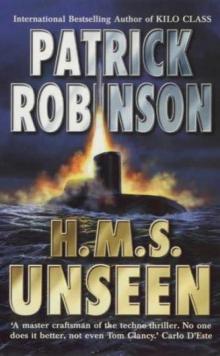 H.M.S. Unseen am-3
H.M.S. Unseen am-3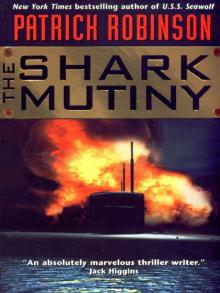 The Shark Mutiny (2001)
The Shark Mutiny (2001)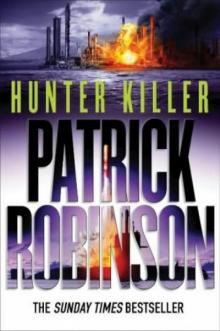 Hunter Killer am-8
Hunter Killer am-8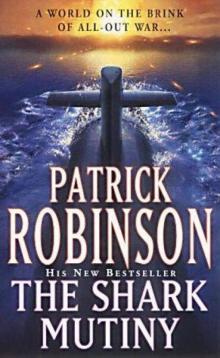 The Shark Mutiny am-5
The Shark Mutiny am-5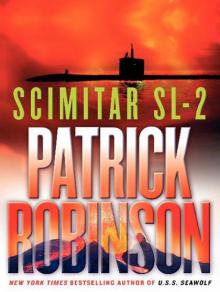 Scimitar SL-2
Scimitar SL-2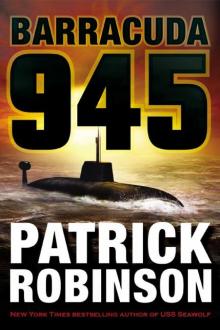 Barracuda 945 am-6
Barracuda 945 am-6 Hunter Killer
Hunter Killer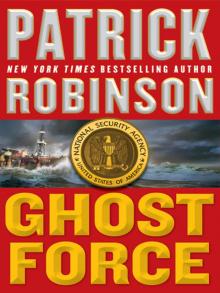 Ghost Force
Ghost Force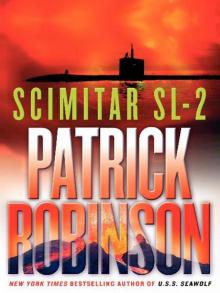 Scimitar SL-2 (2004)
Scimitar SL-2 (2004)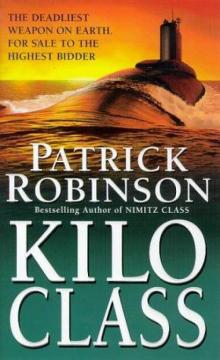 Kilo Class am-2
Kilo Class am-2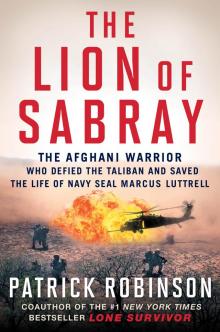 The Lion of Sabray
The Lion of Sabray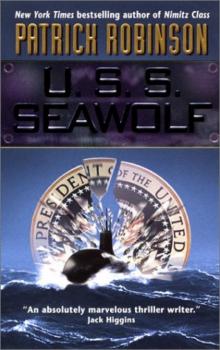 U.S.S. Seawolf am-4
U.S.S. Seawolf am-4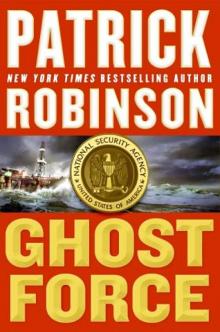 Ghost Force am-9
Ghost Force am-9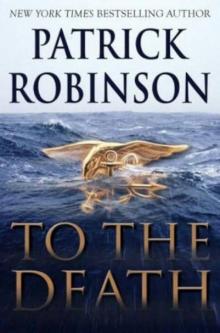 To the Death am-10
To the Death am-10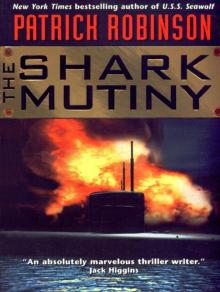 The Shark Mutiny
The Shark Mutiny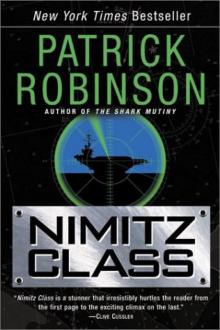 Nimitz Class am-1
Nimitz Class am-1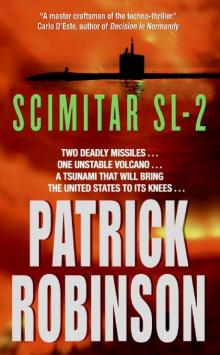 Scimitar SL-2 am-7
Scimitar SL-2 am-7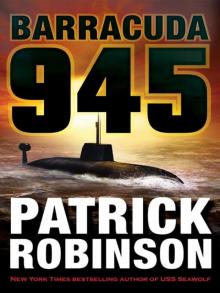 Barracuda 945
Barracuda 945 Intercept
Intercept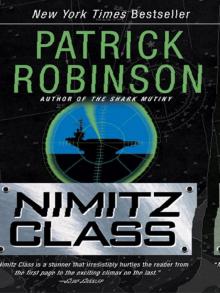 Nimitz Class (1997)
Nimitz Class (1997)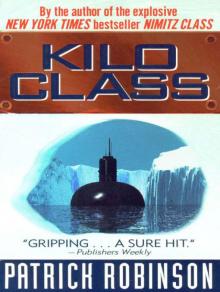 Kilo Class
Kilo Class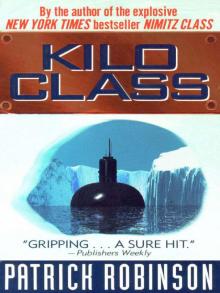 Kilo Class (1998)
Kilo Class (1998) Diamondhead
Diamondhead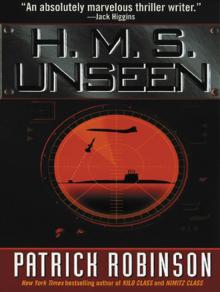 H.M.S. Unseen
H.M.S. Unseen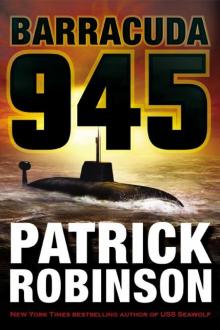 Barracuda 945 (2003)
Barracuda 945 (2003)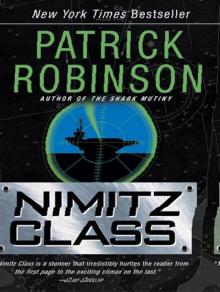 Nimitz Class
Nimitz Class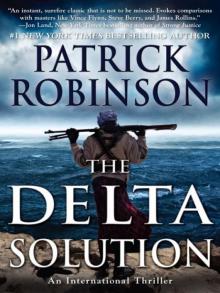 The Delta Solution
The Delta Solution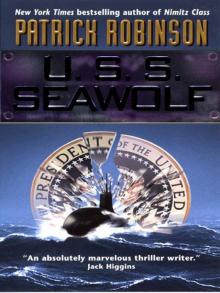 U.S.S. Seawolf
U.S.S. Seawolf